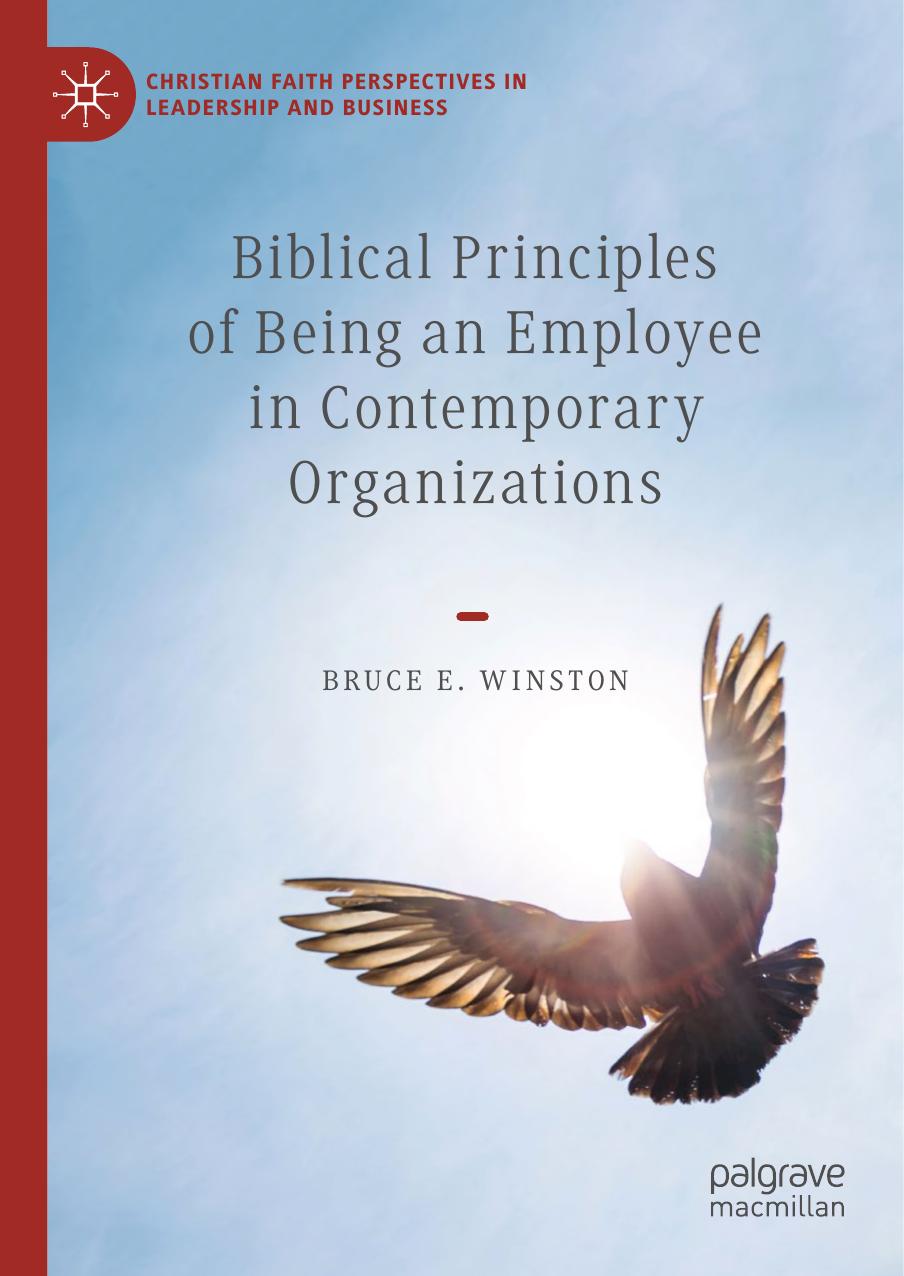Biblical Principles of Being an Employee in Contemporary Organizations by Bruce E. Winston

Author:Bruce E. Winston
Language: eng
Format: epub, pdf
ISBN: 9783030111694
Publisher: Springer International Publishing
Micro-Level Ethical Behaviors: Organizational Code of Ethics
While the macro level of ethics from the Ten Commandments and the mid-range level of ethics from the Book of Proverbs apply to all of us as employees of all firms, the micro-level ethical behaviors based on the industry or firm apply only to those employees of that industry or firm. For example, the American Medical Association’s code of ethics applies to members of the American Medical Association and the American Marketing Association’s code of ethics applies to its members; there is a connection across the associations. Likewise, a firm’s code of ethics applies to the employees of that specific firm. Some firms extend their code of ethics to member firms in the supply chain and require suppliers to agree to work/live by a code of ethics that fit with the main customer firm’s code of ethics (Jiang, 2009). As employees, we need to be aware if there are industry-specific, firm-specific, or supplier-specific codes of ethics that we need to understand.
According to McNutt and Batho (2005), “The clearest example of morally right actions within a firm are precisely those in which an employee’s determination to act in accordance with duty overcomes their evident self-interest and obvious desire to do otherwise” (p. 657). The value of a firm-based code of ethics based on values is to define what is morally right. Employees would be expected to agree to what is morally right or to not stay with the firm as an employee. Thus, employees should examine the firm’s code of ethics before agreeing to join the firm. Alignment of the employee’s morals and the firm’s morals is part of the person-organization fit discussed in the prior chapter.
Schwartz (2004) emphasized that employees’ perceptions of the ethics in a code contribute to the employees’ agreement with, and acceptance of, the code. This agreement means that employees should not only know what the content of the code is but that employees understand what the specific elements of the code mean and what values/behaviors are appropriate in the firm. Racelis (2010) supported the importance of knowing what values/behaviors are appropriate when employees face ethical business dilemmas. Valentine, Hanson, and Fleischman (2018) found that the presence of firm-based codes of ethics had a positive relationship with employees’ internal locus of control and employees’ ethical judgment of workplace incivility (p. 1). Valentine and Godkin (2017) determined that corporate social responsibility, which contributes to person-organization fit, is to some extent grounded in the firm’s ethics. As employees, we should be aware of the firm’s ethics, as well as an industry code of ethics that the firm may use and confirm, before accepting an offer of employment, that this is a good fit between employee and firm. Inabinett and Ballaro (2014) also determined that a misalignment of workplace values and the values of Millennial employees is a contributing factor to Millennial employees’ decision to leave the employer. As employees, we should conduct due diligence about the firm before applying to work there.
Download
Biblical Principles of Being an Employee in Contemporary Organizations by Bruce E. Winston.pdf
This site does not store any files on its server. We only index and link to content provided by other sites. Please contact the content providers to delete copyright contents if any and email us, we'll remove relevant links or contents immediately.
Tools of Titans by Timothy Ferriss(8359)
Change Your Questions, Change Your Life by Marilee Adams(7730)
Deep Work by Cal Newport(7054)
Playing to Win_ How Strategy Really Works by A.G. Lafley & Roger L. Martin(6202)
Man-made Catastrophes and Risk Information Concealment by Dmitry Chernov & Didier Sornette(5993)
Digital Minimalism by Cal Newport;(5743)
Big Magic: Creative Living Beyond Fear by Elizabeth Gilbert(5739)
Ego Is the Enemy by Ryan Holiday(5406)
The Slight Edge by Jeff Olson(5403)
The Motivation Myth by Jeff Haden(5199)
The Laws of Human Nature by Robert Greene(5153)
Stone's Rules by Roger Stone(5073)
Tuesdays with Morrie by Mitch Albom(4762)
Eat That Frog! by Brian Tracy(4509)
Rising Strong by Brene Brown(4442)
Skin in the Game by Nassim Nicholas Taleb(4231)
The Money Culture by Michael Lewis(4182)
Bullshit Jobs by David Graeber(4176)
Skin in the Game: Hidden Asymmetries in Daily Life by Nassim Nicholas Taleb(3985)
